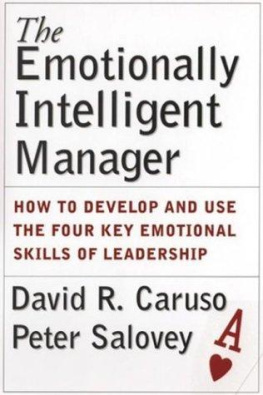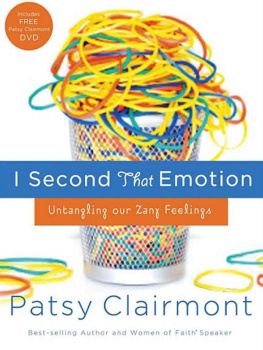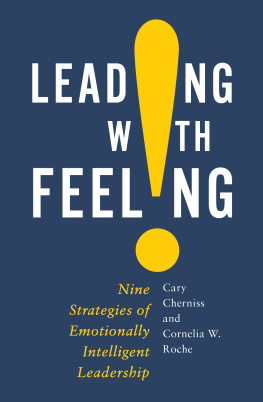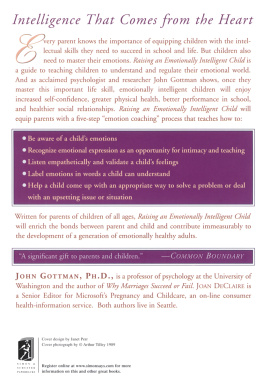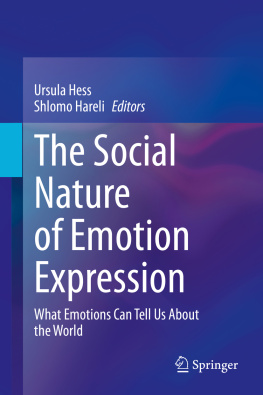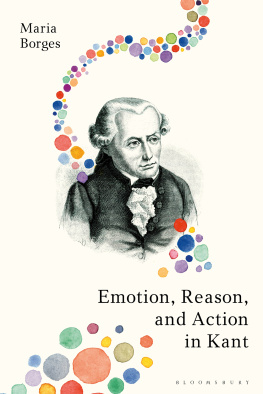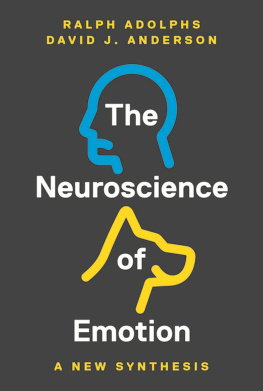The Emotionally Intelligent ManagerHow to Develop and Use the Four Key Emotional Skills of Leadership
David R. Caruso
Peter Salovey
Caruso.ffirs 2/7/04 11:52 AM Page vi
Published by Jossey-Bass
A Wiley Imprint
989 Market Street, San Francisco, CA 94103-1741 www.josseybass.com
No part of this publication may be reproduced, stored in a retrieval system, or transmitted in any form or by any means, electronic, mechanical, photocopying, recording, scanning, or otherwise, except as permitted under Section 107 or 108 of the 1976 United States Copyright Act, without either the prior written permission of the Publisher, or authorization through payment of the appropriate per-copy fee to the Copyright Clearance Center, Inc., 222 Rosewood Drive, Danvers, MA 01923, 978-750-8400, fax 978-646-8600, or on the web at .
Material in from Gibbs, N. Whats your EQ? Time, Oct. 1995, is copyright 1995 TIME Inc., and is reprinted by permission.
Several exercises in this book were provided by Sigal Barsade and adapted and reprinted with her permission (, Emotional Scrabble).
Jossey-Bass books and products are available through most bookstores. To contact Jossey-Bass directly call our Customer Care Department within the U.S. at 800-956-7739, outside the U.S. at 317-572-3986, or fax 317-572-4002.
Jossey-Bass also publishes its books in a variety of electronic formats. Some content that appears in print may not be available in electronic books.
Library of Congress Cataloging-in-Publication Data
Caruso, David.
The emotionally intelligent manager: how to develop and use the four key emotional skills of leadership / David R. Caruso, Peter Salovey. p. cm. Includes bibliographical references and index. ISBN 0787970719 (alk. paper) 1. LeadershipPsychological aspects. 2. ManagementPsychological aspects. 3. Emotional intelligence. 4. Executive ability. I. Title: Emotional skills of leadership. II. Salovey, Peter. III. Title. HD57.7.C369 2004 658.4092dc22
2003027933
Printed in the United States of America
FIRST EDITION
HB Printing 10 9 8 7 6 5 4 3 2 1
About the Authors
David R. Caruso is a management consultant specializing in management and organization development. After receiving his B.A. in psychology in 1979, he was awarded a National Institute of Child Health and Human Development predoctoral fellowship to conduct research on intelligence and individual differences at Case Western Reserve University. David received his M.A. and Ph.D. in psychology in 1982 and 1983 from Case. Upon graduation, he was awarded a postdoctoral fellowship and spent two years at Yale University conducting research on competence and intelligence.
Davids career path took a sharp turn, which brought him from academia into corporate life. He next worked for ten years in Fortune 500 organizations as a market researcher, strategic planner, and product line manager. He led numerous product development teams, conducted sales training seminars, and developed a number of marketing plans for business and consumer products. As a product manager with P&L responsibility, he was responsible for launching a line of software products with first-year revenue of $11 million.
After he was downsized from his product-manager job, David began his own consulting practice in 1993. His practice areas include executive coaching, leadership development, and career assessment. He also teaches emotional skills to individuals and groups; he designed and now offers highly acclaimed interactive workshops on emotional intelligence. His practical, hands-on experience is complemented by his continuing research and academic work as a research affiliate in the Department of Psychology at Yale University. He has published a number of papers and chapters in the areas of intelligence and emotional intelligence.
Peter Salovey is dean of the Graduate School of Arts and Sciences at Yale University. He is the Chris Argyris Professor of Psychology and served as chair of the Department of Psychology from 2000 to 2003. Peter is also professor of management and of epidemiology and public health. He directs the Health, Emotion and Behavior Laboratory and is deputy director of the Yale Center for Interdisciplinary Research on AIDS. He has affiliations with the Yale Cancer Center and the Institution for Social and Policy Studies.
Peter received an A.B. in psychology and a coterminal M.A. in sociology from Stanford University in 1980. He holds three Yale degrees in psychology: an M.S. (1983), M.Phil. (1984), and Ph.D. (1986). He joined the Yale faculty as an assistant professor in 1986 and has been a full professor since 1995.
Peters research has focused on the psychological significance and function of human moods and emotions, as well as the application of social-psychological principles to motivate people to adopt behaviors that protect their health. His recent work concerns the ways in which emotions facilitate adaptive cognitive and behavioral functioning.
With John D. Mayer, he developed a broad framework, coined emotional intelligence, to describe how people understand, manage, and use their emotions. Peters research has been funded by a Presidential Young Investigator (PYI) Award from the National Science Foundation and grants from the National Cancer Institute, National Institute of Mental Health, National Institute of Drug Abuse, American Cancer Society, Andrew W. Mellon Foundation, and the Ethel F. Donaghue Womens Health Investigator Program.
Peter has published about two hundred articles and chapters and has authored, coauthored, or edited eleven books. He edits the Guilford Press series Emotions and Social Behavior, and he has served as editor or associate editor for three scientific journals. He is also an award-winning teacher, having been honored with the William Clyde DeVane Medal for Distinguished Scholarship and Teaching in Yale College in 2000 and the Lex Hixon Prize for Teaching in the Social Sciences at Yale in 2002.
In his leisure time, Peter plays stand-up bass with The Professors of Bluegrass.
The author team first met in 1983, when David was a postdoctoral fellow at Yale University and Peter was a graduate student. More than ten years passed until they began their collaborative efforts. Since that time, they have worked together on book chapters, research projects, consulting assignments, and speaking engagements; they have coauthored two ability tests of emotional intelligence, along with colleague John D. Mayer.
You can contact the authors at EImanager.com.
Acknowledgments
We are grateful for the support and assistance of a number of people. We have collaborated with John D. ( Jack) Mayer, our friend and colleague, on emotional intelligence and other topics for more than twenty years. Charles J. (Chuck) Wolfe helped to apply our ability model in organizational settings. We value the insights provided to us by our colleagues at EQ-Japan in Tokyo, especially Tohru Watanabe, Noriko Goh, Masami Sato, and Nao Takayama. Sigal Barsade has contributed much to the emotions-in-the-workplace literature, and she has been a consistent supporter of the ability approach and of this writing effort. Steven Stein and the crew at Multi-Health Systems in Toronto, the publishers of the MSCEIT, have provided helpful advice, and we especially appreciate their support of researchers using the MSCEIT.
There would not have been a book without the active efforts of our literary agent Ed Knappman of New England Publishing Associates, as well as Kristine Schiavoni. Susan Williams of Jossey-Bass truly understood our approach to EI and believed in it. Mary Garrett and Mary OBriant did a terrific job getting a manuscript turned into a book, and Rob Brandt and Carolyn Miller of Jossey-Bass helped to get this book onto the shelves and into your hands.

